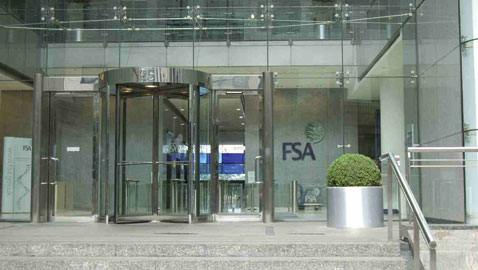The FSA has found serious failings in the sale of interest rate hedging products to some small and medium sized businesses (SMEs), which the regulator says had serious consequences for many of these firms.
The FSA has reached agreement with Barclays, HSBC, Lloyds and RBS to provide appropriate redress where mis-selling has occurred.
The banks will move to provide redress directly for those customers that bought the most complex products.The banks have also agreed to stop marketing interest rate structured collars to retail customers.
Interest rate hedging products can protect bank customers against the risk of interest rate movements and can be an appropriate product when properly sold in the right circumstances. During the period 2001 to date, banks sold around 28,000 interest rate protection products to customers.
These products range in complexity from comparatively simple ‘caps’ that fixed an upper limit to the interest rate on a loan, through to the more complex derivatives such as ‘structured collars’ which fixed interest rates within a band but introduced a degree of interest rate speculation.
Following a case review and discussion with over 100 SMES, the FSA found number of failings, including:
- Poor disclosure of exit costs;
- Failure to ascertain the customers’ understanding of risk;
- Non advised sales straying into advice;
- “Over-hedging” (i.e. where the amounts and/or duration did not match the underlying loans); and
- Rewards and incentives being a driver of these practices.
Not all businesses will be owed redress, but for those that are, the exact redress will vary from customer to customer, but could include a mixture of cancelling or replacing existing products, together with partial or full refunds of the costs of those products. This exercise will be scrutinised by an independent reviewer at each bank appointed under the FSA’s powers.
“For many small businesses this has been a difficult and distressing experience with many people’s livelihoods affected,” said Martin Wheatley, managing director of the conduct business unit at the FSA. “Our work has focused on ensuring a swift outcome for these businesses that form such an important part of the economy.
“I am pleased that Barclays, HSBC, Lloyds and RBS have agreed to do the right thing by their customers and offer redress or a review of past sales. These firms have responded to the need to provide a fair deal for customers by working with us, and I welcome this outcome.
“I am particularly pleased that the CEOs Bob Diamond, Brian Robertson, Antonio Horta Osorio and Chris Sullivan have provided a personal assurance that they will have responsibility for oversight of this work and will ensure that complainants are treated fairly. They have also committed that, except in exceptional circumstances, they will not foreclose on or vary existing lending facilities without the customer’s prior consent.”
















